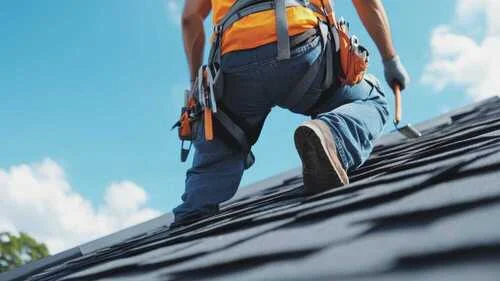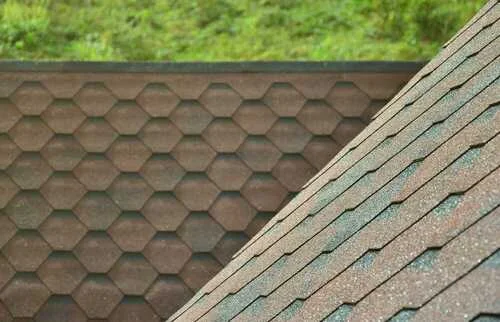When construction disputes involve roofing issues, the technical complexity often requires specialized knowledge beyond what attorneys and judges possess. A roofing expert witness provides this critical expertise, helping courts understand the nuances of proper roofing design, installation, and performance. Their testimony can make the difference between a successful claim and a dismissed case, especially when dealing with water intrusion, structural damage, or premature roof failure.
Roofing systems are among the most vital components of any building, serving as the primary defense against weather while contributing significantly to energy efficiency and structural integrity. When these systems fail, the consequences can be devastating, leading to extensive property damage, health hazards from mold and mildew, and substantial financial losses. Understanding what caused the failure, who bears responsibility, and how to remedy the situation requires the specialized knowledge only a qualified roofing expert witness can provide.
The Role and Qualifications of a Roofing Expert Witness
A roofing expert witness serves as an impartial technical authority who investigates, analyzes, and explains complex roofing issues in legal proceedings. Their primary responsibility is to provide fact-based, objective opinions regarding roofing matters in dispute. Unlike ordinary witnesses who testify about what they personally observed, expert witnesses in roofing cases offer professional judgments based on their specialized knowledge, experience, and investigation of the specific case.
The value of a roofing expert witness lies in their ability to translate technical roofing concepts into language that judges, juries, and attorneys can understand. They examine the evidence, conduct necessary testing, review relevant documentation, and prepare detailed reports that explain their findings and conclusions. During testimony, they answer questions about roofing standards, best practices, and the specific issues in the case, helping the court reach informed decisions.
Qualifications and Expertise Required
Not everyone with roofing experience qualifies as an expert witness. The court evaluates potential witnesses based on their credentials, experience, and ability to provide reliable testimony. Typical qualifications for a roofing expert witness include:
- Educational Background: Most qualified experts have formal education in fields such as civil engineering, architectural engineering, construction management, or building science. Advanced degrees often enhance credibility.
- Professional Experience: Substantial hands-on experience in the roofing industry is essential. This typically includes direct involvement in roofing design, installation, inspection, or maintenance over many years.
- Specialized Knowledge: An expert witness roofing professional should have in-depth knowledge of various roofing systems, including asphalt shingles, metal roofing, clay and concrete tiles, flat roof membranes, and more. Knowledge of regional building codes and industry standards is also crucial.
- Professional Certifications: Relevant certifications might include those from organizations like the Institute of Building Enclosure Consultants (IIBEC), the National Roofing Contractors Association (NRCA), or similar professional bodies.
- Previous Expert Witness Experience: Prior experience providing testimony can be valuable, though it’s not always required if other qualifications are strong.
Types of Cases Requiring Roofing Expertise
A roof expert witness may be called upon in various legal proceedings, including:
- Construction Defect Claims: Cases alleging improper design, installation, or materials that resulted in roof failure or underperformance.
- Insurance Disputes: Disagreements about coverage for roof damage, particularly when determining whether damage resulted from covered perils (like storms) or non-covered issues (like normal wear and tear).
- Contract Disputes: Conflicts between property owners and contractors regarding the scope, quality, or completion of roofing work.
- Product Liability Cases: Claims that roofing materials were defective or failed to perform as advertised.
- Personal Injury Cases: Situations where roof failures or falling materials caused injuries.
- Property Damage Claims: Cases involving water intrusion or other damage allegedly caused by roofing issues.
In each type of case, the roofing expert witness provides specialized insights that help establish causation, standard of care, and the extent of damages—all critical elements in construction litigation.
How Roofing Expert Witnesses Investigate and Analyze Cases
The investigative process employed by a roofing expert witness follows a methodical approach designed to uncover facts and reach reliable conclusions. This systematic methodology ensures that their opinions will stand up to scrutiny in legal proceedings.
On-Site Investigation Methods
The most critical aspect of a roofing expert witness’s work often involves thorough on-site investigation. During these inspections, the expert typically:
- Conducts Visual Examinations: A detailed visual survey of the roof surface, underlayment, flashing, penetrations, drainage systems, and supporting structures.
- Documents Conditions: Takes extensive photographs and measurements to record the current state of the roof system.
- Performs Non-Destructive Testing: May use infrared thermography, moisture meters, or electronic leak detection to identify hidden issues without damaging the roof.
- Conducts Core Sampling: When appropriate and authorized, the specialist removes small sections of the roof to examine its composition and condition at different layers.
- Evaluates Installation Quality: Assesses workmanship, comparing the actual installation to industry standards and manufacturer specifications.
- Examines Adjacent Building Components: Investigates how the roof interacts with walls, chimneys, HVAC equipment, and other building elements.
Document Review and Technical Analysis
Beyond physical inspection, a thorough roofing expert witness will review extensive documentation related to the roof system:
- Design Documents: Architectural and engineering drawings, specifications, and details provide information about the intended roof design.
- Installation Records: Contractor documentation, material delivery tickets, and daily logs reveal information about how the roof was installed.
- Maintenance History: Records of inspections, repairs, and maintenance activities help establish the roof’s care over time.
- Manufacturer Guidelines: Product specifications and installation instructions clarify the proper use of roofing materials.
- Building Codes and Standards: Local building codes and industry standards establish the minimum requirements for roof construction.
- Weather Data: Historical weather information may be relevant when evaluating storm damage claims.
Specialized Testing and Assessment
In complex cases, an asphalt roofing expert witness might employ specialized testing methods to gather additional data:
- Laboratory Analysis: Sending material samples to laboratories for testing of physical properties, chemical composition, or signs of manufacturing defects.
- Wind Uplift Testing: Evaluating the roof’s resistance to wind forces, particularly important in hurricane-prone regions.
- Water Penetration Testing: Controlled application of water to identify leakage points and paths.
- Adhesion Testing: Measuring how well roofing materials adhere to one another or to the substrate.
- Thermal Performance Assessment: Evaluating the roof’s insulation value and contribution to building energy efficiency.

Specialized Areas of Roofing Expert Testimony
Roofing encompasses numerous specialized systems and materials, each requiring specific expertise. A qualified roofing expert witness often specializes in particular roofing technology and construction aspects.
Asphalt Shingle Roofing Assessment
Asphalt shingles remain the most common residential roofing material in North America, and litigation involving these systems is frequent. An asphalt roofing expert witness evaluates manufacturing quality by examining granule adhesion, asphalt content, and mat strength to determine if materials meet industry standards. They identify installation issues like improper nailing patterns, inadequate ventilation, or flashing deficiencies that compromise performance.
These experts differentiate between manufacturing defects, installation errors, and legitimate storm damage—a critical distinction in insurance claims. They also assess whether proper maintenance could have prevented problems and provide opinions about expected longevity under various conditions. This specialized knowledge helps courts understand whether problems stem from defects, errors, weather events, or normal aging processes.
Commercial Flat Roofing Systems
Commercial roofing disputes involve more complex systems and higher financial stakes than residential claims. Expert witnesses assess membrane selection and compatibility, determining whether the specified membrane (EPDM, TPO, PVC, etc.) suits the building’s conditions. They examine slope and drainage design to ensure adequate water removal and code compliance, as ponding water represents a primary cause of commercial roof failures.
These specialists scrutinize attachment methods and the execution of critical details like edge terminations, penetrations, and expansion joints where leaks often originate. They determine whether installation methods adhered to manufacturer requirements for warranty coverage, a significant financial consideration in commercial disputes. The complexity of these systems demands expert witnesses with extensive experience in commercial roofing types and standards.
Metal Roofing Expertise
Metal roofing systems present unique challenges requiring specialized expertise from a roof expert witness. These professionals evaluate whether appropriate metal types and finishes were specified for the specific environmental conditions, especially in coastal or industrial zones where corrosion risks increase. They assess whether standing seam, screw-down, or architectural panel systems were properly designed and applied for the building’s configuration and local weather patterns.
Installation techniques receive careful scrutiny, with experts identifying whether proper methods for fastening, seaming, and accommodating thermal movement were employed. They investigate potential galvanic reaction issues between dissimilar metals and address noise and thermal performance concerns unique to metal roofing. Their specialized knowledge allows courts to understand the technical complexities of metal roofing failures and appropriate remediation approaches.
Selecting and Working with a Roofing Expert Witness
Choosing the right roofing expert witness can significantly impact the outcome of construction litigation. Attorneys and parties involved in roofing disputes should consider several factors when selecting and working with these specialists.
Matching Expertise to Case Requirements
The most important consideration is finding an expert whose specific expertise aligns with the case requirements:
- Roofing System Type: Ensure the expert has specific experience with the relevant roofing system (asphalt shingles, commercial flat roofing, metal roofing, etc.).
- Building Type: Consider whether residential, commercial, industrial, or institutional building experience is most relevant.
- Regional Knowledge: Local building codes, climate conditions, and construction practices vary regionally, making local expertise valuable.
- Issue Specificity: Match the expert’s background to the specific issues in dispute, whether design errors, installation defects, material failures, or maintenance problems.
- Legal Experience: Consider whether the case’s complexity requires an expert with prior testimony experience.
Evaluating Credibility and Effectiveness
Beyond technical qualifications, effective expert witnesses possess certain qualities that enhance their credibility and persuasiveness:
- Objectivity: The best experts maintain professional objectivity rather than becoming advocates for the party that retained them.
- Clear Communication: They can explain complex technical concepts in accessible language without oversimplification.
- Professional Demeanor: They present themselves professionally and respond thoughtfully to challenging questions.
- Thoroughness: They conduct comprehensive investigations and support their conclusions with solid evidence.
- Consistency: Their opinions remain consistent under scrutiny, with any changes based on new information being clearly explained.
Maximizing the Expert’s Contribution
Attorneys can enhance the effectiveness of a roofing expert witness through proper preparation and collaboration:
- Early Engagement: Involving the expert allows them to guide evidence preservation, document requests, and investigation planning.
- Complete Information: Providing full access to relevant documents, site visits, and information helps the expert form comprehensive opinions.
- Clear Scope Definition: Clearly defining the questions the expert should address ensures focused and relevant testimony.
- Preparation for Testimony: Thoroughly preparing the expert for deposition and trial testimony helps them communicate effectively in the legal setting.
- Respectful Collaboration: Respecting the expert’s professional independence ensures credible and defensible opinions.
The most successful roofing litigation outcomes typically result from effective collaboration between legal teams and well-qualified expert witnesses who thoroughly understand the case’s technical and legal aspects.

In Conclusion
The complexity of modern roofing systems and the high stakes in construction litigation make roofing expert witnesses indispensable in resolving disputes related to roof design, installation, and performance. These specialized professionals bridge the gap between technical roofing knowledge and legal proceedings, helping courts understand complex issues and reach informed decisions.
A qualified roofing expert witness brings a unique combination of education, experience, and investigative skills to each case. Through methodical investigation, document review, and analysis, they uncover the facts needed to establish standards of care, determine causation, and quantify damages. Their testimony provides clarity on issues that would otherwise remain obscure to judges and juries without specialized roofing knowledge.
Whether addressing asphalt shingle defects on residential properties or complex waterproofing failures on commercial buildings, the right expert witness can make a decisive difference in construction litigation outcomes. By selecting experts whose specific qualifications match case requirements and working collaboratively with them throughout the legal process, attorneys can maximize the value these specialists bring to roofing disputes.
